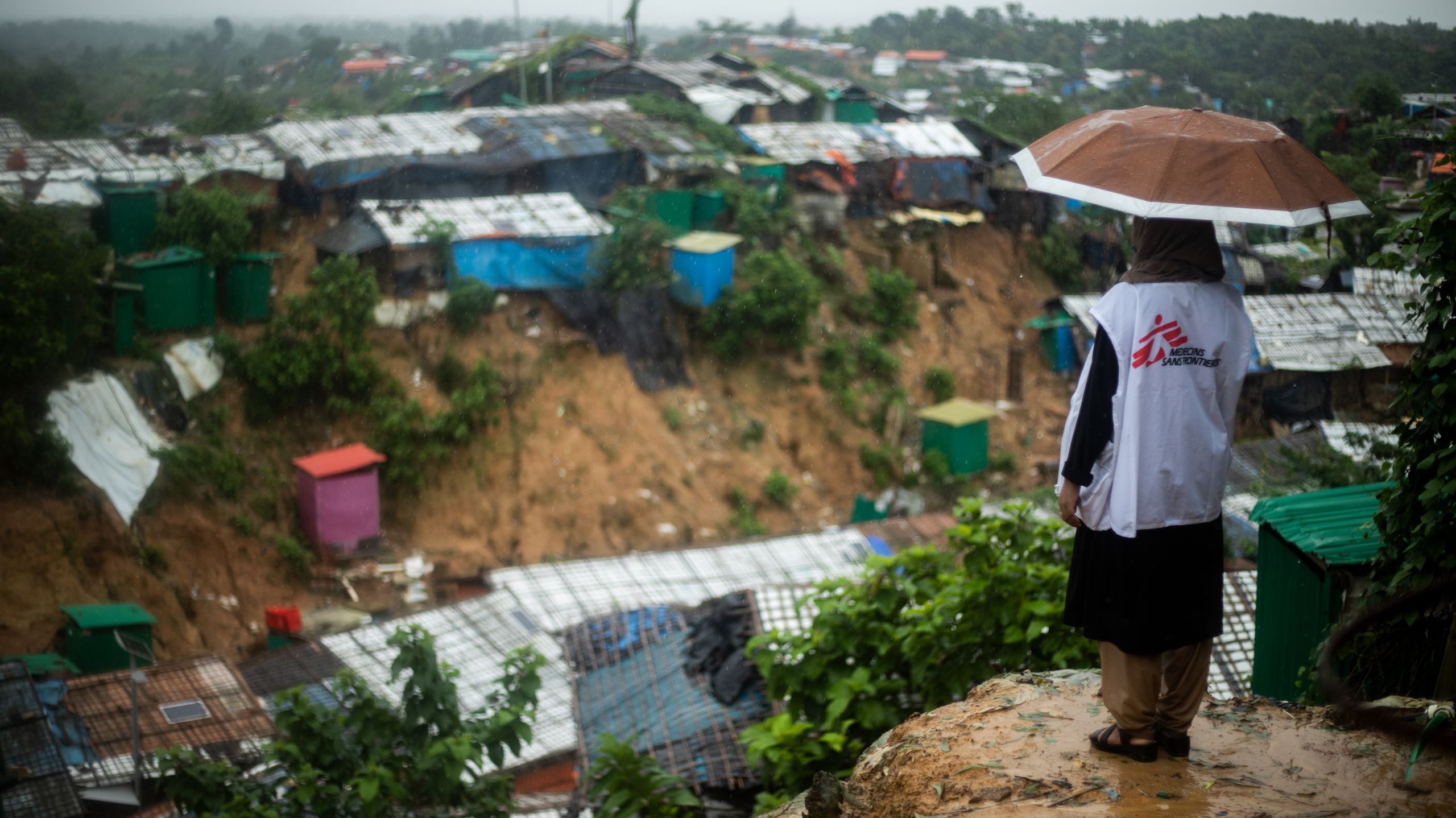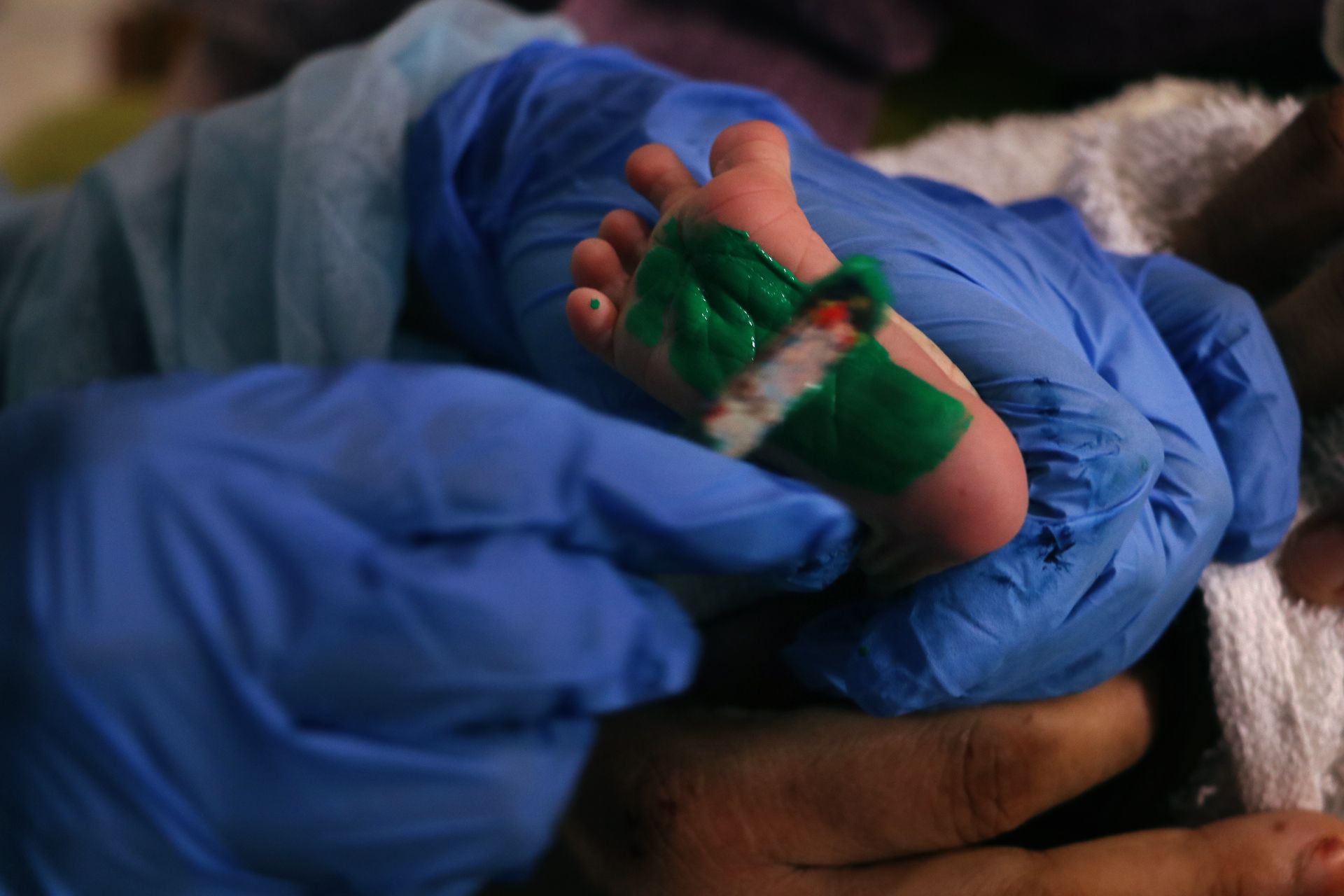Living in limbo:
Rohingya refugees in Bangladesh three years after the main exodus

25th August 2020 will mark three years since a violent, systemic crackdown by the Myanmar military against the Rohingya began in Rakhine state. In just a few weeks, many Rohingya were forced across the border into Bangladesh, joining around 200,000 others who had fled previous outbreaks of violence. Now, some 900,000 Rohingya live as refugees in Cox’s Bazar, in what has become the world’s largest displacement camp.
Since arriving in Bangladesh, the Rohingya have known nothing but uncertainty. No formal education is allowed, they have few opportunities for work, and no safe way to return home to Myanmar.
This insecurity has worsened with the outbreak of the COVID-19 pandemic, which has reduced their already limited freedoms and diminished their access to healthcare. For many Rohingya refugees, the situation feels hopeless, as they continue to live in overcrowded, basic conditions, dealing with outbreaks of disease, and struggling with the traumas of all they have endured.
Hear from Rohingya refugees and MSF team members share what they see and experience in the Rohingya camps.

The footprints of babies who have been discharged after treatment at the MSF Goyalmara Mother and Child hospital in Cox’s Bazar, south-east Bangladesh.
The footprints of babies who have been discharged after treatment at the MSF Goyalmara Mother and Child hospital in Cox’s Bazar, south-east Bangladesh.
“My biggest worry is for my child… I want him to have a future.”


Sualeha Mohamed Ayubiu, 25, is with her 10 day old son, who doesn’t have a name yet. She used to live in Manupara, Bhushidong city, Myanmar. She lives now in a refugee camp in Bangladesh
Sualeha Mohamed Ayubiu, 25, is with her 10 day old son, who doesn’t have a name yet. She used to live in Manupara, Bhushidong city, Myanmar. She lives now in a refugee camp in Bangladesh
I am a housewife, so I cook and look after our shelter. I am happy with my family. I got married three years ago and had a baby two years later. But my water broke early and the child was stillborn. I still feel bad for that child, sometimes I cry.
I was seriously ill for almost a month after that birth; I was so tired I could barely even turn over. I missed my child very much, and I decided try to get pregnant again and was successful.

Sualeha Mohamed Ayubiu, 25, with her 10-day-old son, at the Goyalmara Mother and Child Hospital in Cox’s Bazar. She now lives in a camp for Rohingya refugees in Bangladesh.
Sualeha Mohamed Ayubiu, 25, with her 10-day-old son, at the Goyalmara Mother and Child Hospital in Cox’s Bazar. She now lives in a camp for Rohingya refugees in Bangladesh.
However, after seven months of pregnancy I started to have the same symptoms again. I had back pain and started to have contractions and gave birth at 3pm. At first, I felt okay, but doctors kept me here because the baby was small. At around 10pm he stopped breathing and turned blue.
The doctors helped me and my baby is getting better now. My baby is now breathing in three ways. Sometimes rapid breathing, sometimes shallow breathing and sometimes it’s hard to tell if he’s breathing at all. After I told a doctor, he checked and said the baby is okay. The doctor sat beside my baby for a long time.

A baby's foot being painted for the footprint wall mural. Footsteps of babies who are discharged after treatment are added to the wall in the MSF Goyalmara Mother and Child hospital in Cox’s Bazar.
A baby's foot being painted for the footprint wall mural. Footsteps of babies who are discharged after treatment are added to the wall in the MSF Goyalmara Mother and Child hospital in Cox’s Bazar.
For the last 10 nights I have slept badly; I'm so worried about my child. The doctors always give me hope and tell me it is going to be okay, but I am so afraid for him. My biggest worry is for my child. I want to be able to look after him and I want an education for him; I want him to have a future. Maybe if he has an education, he can become a doctor to help other people. You know, if I was educated I wouldn't need a translator to talk to you, I could speak directly in English!
“I am ready to go to Myanmar, as long as our rights are guaranteed.”

The other day, Rashid was playing near the road and was hit by a CNG [a local taxi]. He had some injuries to the back of his head, his lip was split and he had dislocated his shoulder. We took him first to Goyalmara Mother and Child hospital because it was closest to our house, but they sent him to Kutupalong because he needed some special treatment for his lip that he could only get here.
We used to live by the coast in Myanmar; I had my own business and land. I had a house; I was a shrimp farmer. We had more space and autonomy there. Here everything is so crowded, there is not enough space. It is hard for the kids because they like to go out and play.
In Myanmar, there were open spaces, but here they play on the roads and it can be dangerous. We also don't have any financial independence; all we can do is to receive aid. We can't even go to the local market. It has been worse since COVID-19, there are so many restrictions on our movement now that we have to break the rules just to survive.

An MSF staff member checks the temperature of a woman at the Goyalmara Mother and Child hospital in Cox’s Bazar, as part of their COVID-19 prevention measures.
An MSF staff member checks the temperature of a woman at the Goyalmara Mother and Child hospital in Cox’s Bazar, as part of their COVID-19 prevention measures.
Spending our lives in the camp is difficult. The space we have is small and our shelters are made of plastic. There is no space for the children to play. We get food distributions, which are okay, but it is not our usual food, it is not what we would usually eat. We also need fish, vegetables, some variety.
I left Myanmar because my house was burned down. They were killing and torturing everyone and harassing our women; it was not safe. The journey to Bangladesh took three days. It was difficult because the road was not safe.
My wife and I had to carry our two youngest children the whole way because they were not old enough to walk. Eventually we crossed the Naf river and arrived in Bangladesh. The locals provided us with food and water; they were very kind and we were relieved.
I am ready to go back home to Myanmar, so long as our rights are guaranteed, and there is justice and safety. At least in Myanmar there was for the possibility of an education for our children. We could get nice clothes and live in our own homes.

Abu Siddik at the MSF Kutupalong hospital with his five-year-old son Rashid Ullah, who is recovering from some wounds.
Abu Siddik at the MSF Kutupalong hospital with his five-year-old son Rashid Ullah, who is recovering from some wounds.
“Some patients arrive late… it is very complicated for us to repair that situation.”


A baby is examined by medical staff at the MSF Goyalmara Mother and Child hospital in Cox’s Bazar, south-east Bangladesh.
A baby is examined by medical staff at the MSF Goyalmara Mother and Child hospital in Cox’s Bazar, south-east Bangladesh.
Many Rohingya refugees are not accustomed to a normal health system, as they were not able to go to hospitals in Myanmar. We have to do a lot of health promotion to convince them that this is a safe place to be treated.
Some patients arrive late, when they are already seriously ill. When a patient does not come quickly, when their condition is already complicated and the disease is already damaging other organs in their body, it takes a lot of work and it is very complicated for us to repair that situation.

Medical staff in the emergency room waiting area at the MSF Goyalmara Mother and Child hospital in Cox’s Bazar, south-east Bangladesh.
Medical staff in the emergency room waiting area at the MSF Goyalmara Mother and Child hospital in Cox’s Bazar, south-east Bangladesh.
Another problem is antenatal care and deliveries at home, when women have complications during homebirths or their babies are born with complications. A delivery at a hospital can help them avoid these complications and gives us the opportunity to help the baby breathe if it is born with problems or help the mother if she is losing blood.
Too many Rohingya are made to live in one room, without the proper conditions, which means our patients, especially the little ones, are more exposed to many kinds of infections.
“The challenges… became huge in terms of human resources, supply and transport.”

As soon as we had our first COVID-19 patient in Bangladesh, the challenges started and they very quickly became huge in terms of human resources, supply and transport.
Our suppliers didn’t have enough materials because all NGOs had needs and everyone was trying to buy the same things at the same time. Nor was it easy to deal with them because they refused to take cash while the opening hours in the banks were reduced in the big towns and in the small towns the banks mostly stopped working.

MSF staff working at the MSF Kutupalong hospital in Cox’s Bazar, south-east Bangladesh.
MSF staff working at the MSF Kutupalong hospital in Cox’s Bazar, south-east Bangladesh.
We faced difficulties bringing experienced international staff in to join the emergency response and also to moving staff from one place to another. A transport lockdown was enacted and we had staff commuting three to four hours daily to reach work. We had to hire a fleet of buses to transport them.

Teshome Tadesse, from Ethiopia, was a logistics coordinator for MSF Bangladesh
Teshome Tadesse, from Ethiopia, was a logistics coordinator for MSF Bangladesh
#ROHINGYA

